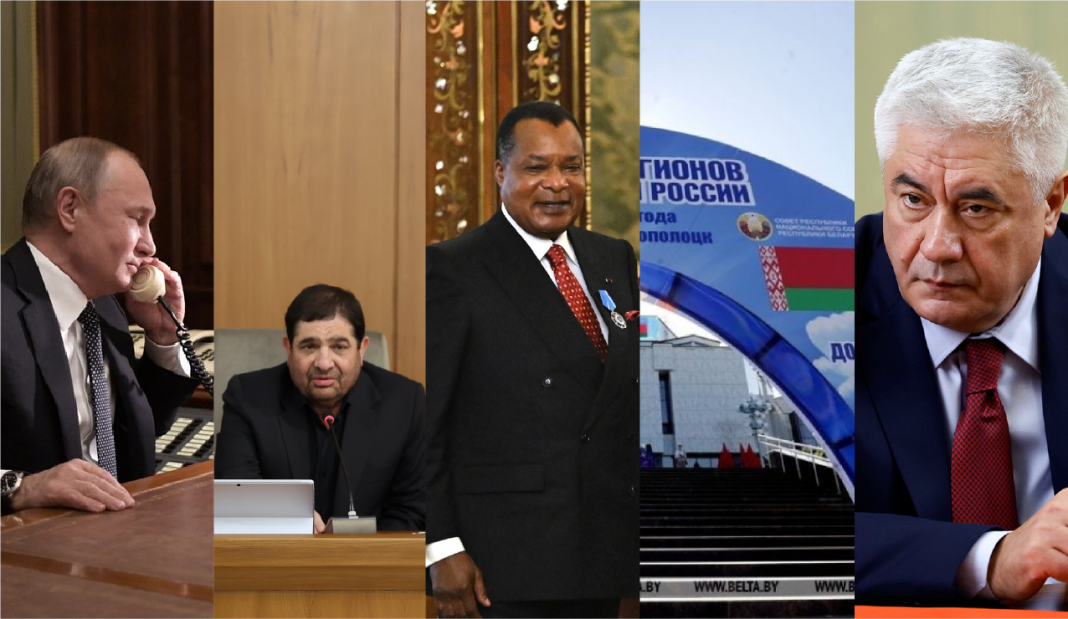This report presents key events that had an important impact on political, economic and social processes within Russia.
According to the results of the past week the following tendencies can be defined in the following theses:
- The topics of international terrorism and the threat of Islamic fundamentalism can again become a point that will lead to the revitalization of contacts between Russia and the Western world, primarily the United States (on the principle of “the enemy of my enemy is my friend”). Obviously, Islamic fundamentalism is also a threat to a number of other countries, including Turkiye, China, India, Central Asian and African states. Putin is betting that the events in Dagestan will shift attention to Russia as a factor in the fight against terrorism and Wahhabism, and may also become a starting point for negotiations with the West on a wide range of issues, preventing them from focusing solely on the Ukrainian issue.
- Russia continues to work to strengthen its presence in Africa. The talks with the Congolese president demonstrate that Russia’s strategy for the region is not limited to the Sahel states. It is clear that the 80-year-old Sassou Nguesso will step down in the foreseeable future, raising questions about the succession of power. In this case, the Congolese elites are interested in the stability of the transit of power, and have high hopes for assistance from Russia. Thus, it is possible to predict an increase of interest in Congo from Russia, as well as possible increase of instability in the region.
- The topic of the deployment of land-based intermediate-range and short-range missiles is quite sensitive in terms of relations between Russia and NATO. Until recently, there was a moratorium on the deployment of these weapons. However, both sides decided to abandon the moratorium. By actualizing this issue, Putin is creating another threat to the United States’ European partners, while at the same time making it clear that such actions are an additional incentive for negotiations (the renewal of the moratorium could become one of the points of the negotiation process between Russia and NATO).
This digest looks at the following issues that were most relevant to Russia between June 24th and June 30th:
- Discussion of the threat of terrorism at the international level against the background of the terrorist act in Dagestan;
- Vladimir Putin’s telephone conversation with Mohammad Mokhber, Acting Chief Executive of Iran;
- Putin’s meeting with the self-proclaimed “head” of the temporarily occupied part of the Kherson region, Vladimir Saldo;
- Russian-Congolese talks;
- Video message of the Russian President to the participants of the plenary session of the Eleventh Forum of Regions of Russia and Belarus;
- Meeting with the permanent members of the Security Council;
- Russian Interior Minister Vladimir Kolokoltsev’s visit to New York.
This Content Is Only For Subscribers
- Discussion of the threat of terrorism at the international level against the background of the terrorist act in Dagestan
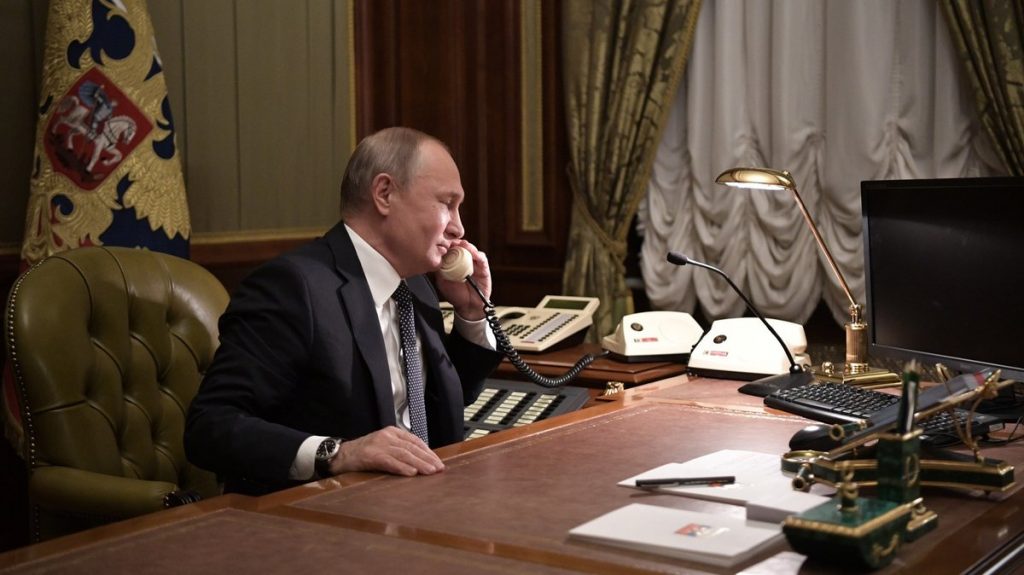
On Sunday, June 23, armed men attacked an Orthodox church and a synagogue in two cities of the Republic of Dagestan (Makhachkala and Derbent), damaging the buildings and setting them on fire. An Orthodox priest was also stabbed to death. As a result of the counter-terrorist operation, the terrorists were eliminated. At the same time it was reported about the death of more than ten law enforcement officers. Ascolta wrote more about the situation in Dagestan in the previous digest.
Already on Monday, June 24, at the initiative of the Kazakh side, a telephone conversation between Kazakh President Kassym-Jomart Tokayev and Vladimir Putin took place. During the conversation Tokayev expressed condolences in connection with the events in Dagestan, as well as condemned such actions of terrorists. It is also noted that the parties discussed the readiness to increase cooperation in the fight against terrorism. In addition, Putin and Tokayev discussed the planned meeting within the framework of the SCO summit, which will be held on July 3-4 in Astana.
On the same day, at the initiative of the Uzbek side, a conversation was held between the presidents of Russia and Uzbekistan. As on the previous occasion, Uzbek President Shavkat Mirziyoyev expressed deep condolences in connection with the deaths of civilians and law enforcement officers as a result of terrorist acts in Dagestan, and also expressed readiness to strengthen joint activities to combat terrorism.
Already on Tuesday, June 25, Vladimir Putin had a telephone conversation with President Recep Tayyip Erdogan, during which the Turkish leader categorically condemned the actions of terrorists in Dagestan, as well as expressed feelings of solidarity with the Russian people, sincere condolences to the families of the victims and wished a speedy recovery to all those injured. The two leaders also discussed a personal meeting scheduled within the framework of the SCO summit.
Totals/Predictions:
The topics of international terrorism and the threat of Islamic fundamentalism can again become a point that will lead to the revitalization of contacts between Russia and the Western world, primarily the United States (on the principle of “the enemy of my enemy is my friend”). Obviously, Islamic fundamentalism is also a threat to a number of other countries, including Turkiye, China, India, Central Asian and African states. Putin is betting that the events in Dagestan will shift attention to Russia as a factor in the fight against terrorism and Wahhabism, and may also become a starting point for negotiations with the West on a wide range of issues, preventing them from focusing solely on the Ukrainian issue.
In addition, the issue of Wahhabism’s activation may bring an additional split in the activities of Western intelligence services (it is known that Great Britain has a more than tolerant attitude to radical Islamic organizations, which is not understood by the U.S. intelligence community). That is why the topic of renewed terrorist threat from Islamists may be very interesting from the point of view of formulating Russian foreign policy in the near future.
- Vladimir Putin’s telephone conversation with Mohammad Mokhber, Acting Chief Executive of Iran
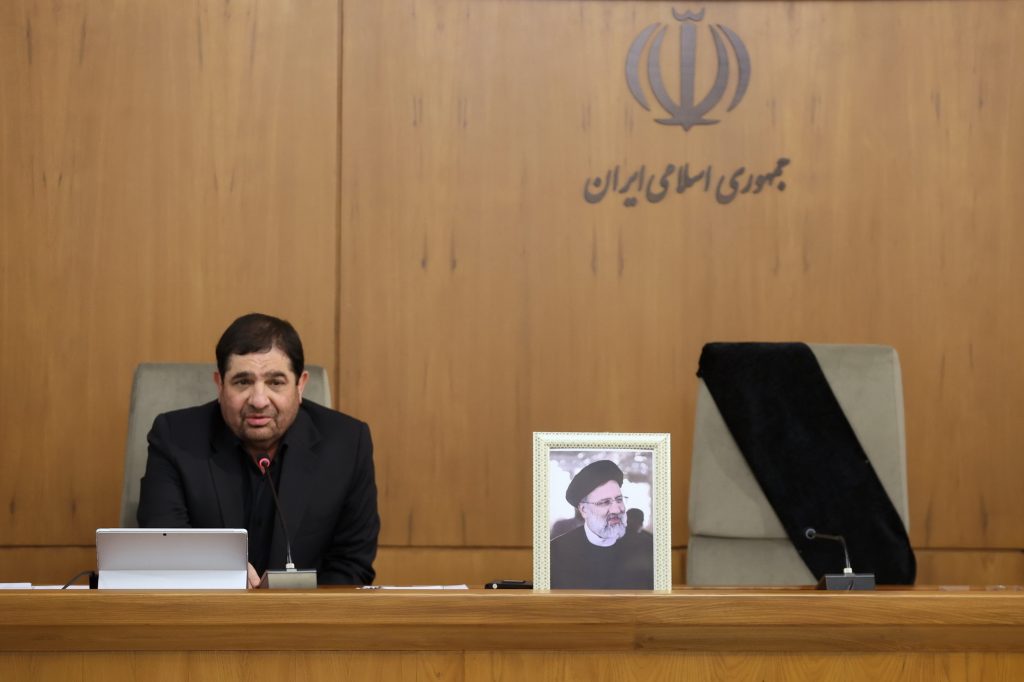
On Wednesday, June 26, at the initiative of the Russian side, Vladimir Putin had a telephone conversation with Acting Head of Iran’s Executive Branch Mohammad Mokhber. According to official information, during the conversation they discussed issues of further mutually beneficial bilateral cooperation in all key areas. In particular, they expressed particular satisfaction with the successfully progressing cooperation in the energy sector and the implementation of large-scale infrastructure projects.
It is also noted that the two sides discussed the upcoming presidential elections in Iran.
The Russian president emphasized confidence that Russian-Iranian friendly relations will continue to develop in an increasing manner.
Totals/Predictions:
Russia takes a keen interest in the situation around the presidential election in Iran. It is important for Putin that Iran’s foreign policy course after the presidential election remains unchanged. Iran is a very important link in the system of relations within the Global South and Russia’s foreign policy strategies. The arrival of an undesirable (from Russia’s point of view) figure in the Iranian presidency, who can adjust the country’s foreign policy in a certain direction (even though the general line in Iran is set by the ayatollah, not the president), may result in real problems for Russia, which will affect the situation in the region as a whole and may destroy the system of anti-Western coalition states that Moscow and Beijing are carefully building.
- Putin’s meeting with Vladimir Saldo, self-proclaimed “head” of the temporarily occupied part of the Kherson region
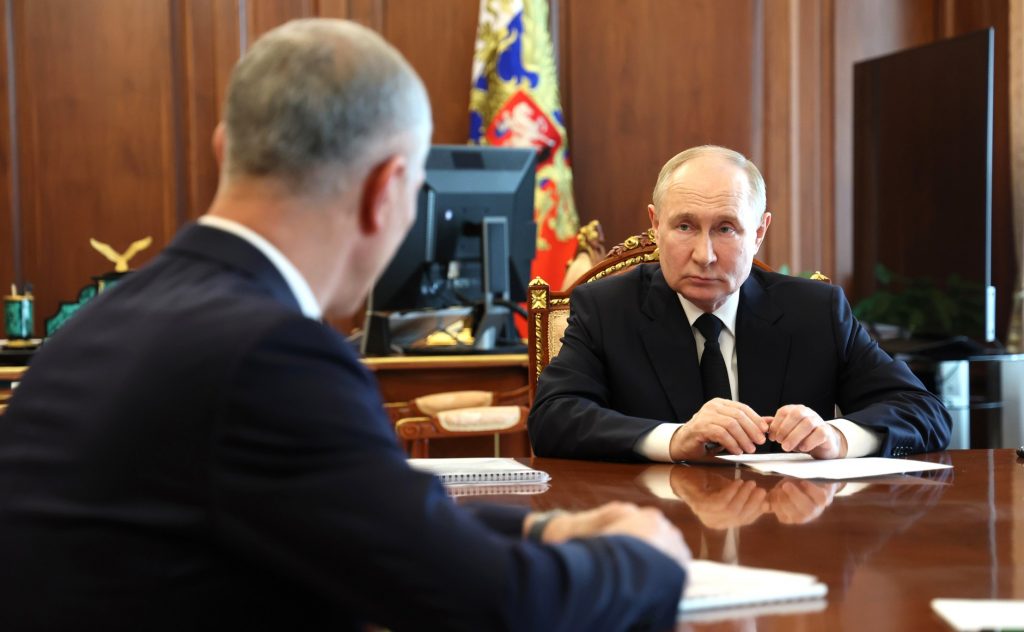
On Tuesday, June 25, Vladimir Putin met with the self-proclaimed “head” of the temporarily occupied part of Kherson Region, Volodymyr Saldo, in the Kremlin. According to official information, the meeting was devoted to discussing the implementation of the plan for agricultural work, as well as the development of road and energy infrastructure in the region.
Key Abstracts:
- Saldo: “We have almost 1,300 [thousand] hectares on the left bank. We have already harvested 65 thousand hectares out of 950 thousand hectares. There is a lot of grain, despite the fact that, of course, we lost yield due to the destruction of the Kakhov dam, but nevertheless…”.
- Saldo: “There is not enough water. If there were water, the yield would be higher. And so, thank God, 1243 combines have already started work, almost 2300 vehicles, 1300 tractors are still engaged, a large number. There is fuel, thank you, we have brought everything”.
- Saldo: “The first priority tasks are, of course, the organization of gas supply, both to the residential sector and industrial facilities, restoration of power supply and large-scale housing construction, first of all, but then industrial construction as well.
- Saldo: “If Crimea used to receive gas through us, now we receive gas through Crimea. I think this is also temporary, because in the near future gas will also come from the northern part of the country – there is an unfinished gas trunkline there.
- Saldo: “We still have weather, it takes a long time to make roads, but as of July 1, we have practically fulfilled the plan for two years, almost seven and more billion spent on federal roads, as well as on local and inner-city roads. And this is a very good response from the population. Therefore, roads are, of course, in the first place in any opinion polls.
Totals/Predictions:
The meeting is aimed at emphasizing once again Russia’s unchanged course of integrating the occupied territories into the Russian Federation. The meeting with Saldo is a message: Putin is not going to return Kherson Region to Ukraine and will not include this issue in the negotiation package.
- Russian-Congolese negotiations
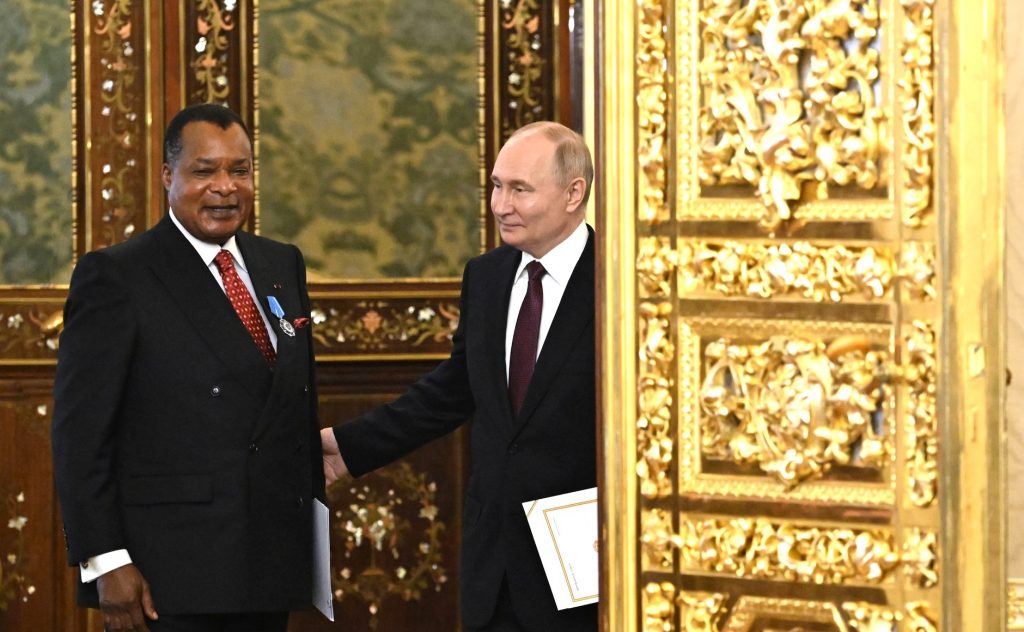
On Thursday, June 27, the Kremlin hosted talks between Vladimir Putin and President of the Republic of Congo Denis Sassou Nguesso, who arrived in Russia on an official visit. The parties discussed bilateral relations, as well as possible prospects for their further strengthening. It is also noted that during the meeting in a small group Putin presented Denis Sassou Nguesso with the Order of Honor for his great contribution to the development and strengthening of relations between the Russian Federation and the Republic of Congo.
Key Abstracts:
- Putin: “I would like to remind you that you visited our country back in Soviet times. We have very good and kind relations with you, both at the interstate and personal levels.
- Putin: “You personally have done a lot for the development of Russian-Congolese relations and took part in two Russia-Africa summits, you are making the necessary efforts to develop our cooperation in almost all areas. I am referring to the political level, and recently trade and economic ties have been developing noticeably”.
- Sassou Nguesso: “Indeed, Russia and Congo have maintained friendly relations, relations of solidarity for 60 years – this year we celebrate the 60th anniversary of the establishment of friendly relations, bonds of solidarity, relations of reliable cooperation between our countries”.
- Sassou Nguesso: “Your country maintains relations not only with Congo, but with African countries in general. And thanks to this, the African people have learned a period of uplift, gained power in the fight against colonization, for their liberation. The African people are grateful to you for this”.
- Sassou Nguesso: “We are grateful for your support. Our visit takes place in a difficult international context, at a time when your country, your people are behaving bravely, resisting the sanctions illegally imposed on your state as a result of the Ukrainian conflict – but also as a result of other conflicts.”
Totals/Predictions:
This meeting should be seen in the context of the development of Russia’s African policy, which has been outlined over the past few years. It was preceded by Foreign Minister Sergey Lavrov’s trips to Africa in 2022-2023 and the Russia-Africa summit in the summer of 2023.
In this situation, we can talk about the expansion of Russia’s sphere of influence and the restoration of the positions on the African continent that the Soviet Union had. The figure of 80-year-old President of the Republic of Congo Denis Sasso-Nguessou is remarkable in itself. He has been (intermittently) in power since 1979, was an adherent of Marxist ideology, a friend of the Soviet Union. He lost power in 1992, but regained it in 1997, after a civil war and intervention by neighboring Angola.
Sassou Nguesso is trying to build relations with both Russia and China. He has tense relations with the United States and a number of neighboring countries, which pushes the leader of the Republic of Congo into Russia’s arms. In addition, the Republic of Congo has large oil and gas reserves (the third oil producer in Sub-Saharan Africa with proven reserves of 2.9 billion barrels and the 30th oil producer in the world). This is all the more attractive to Russia.
It is clear that the 80-year-old Sassou Nguesso will step down in the foreseeable future and this will raise the question of succession to power. In this case, the Congolese elites are interested in the stability of the transit of power, and have high hopes for assistance from Russia. Thus, it is possible to predict an increased interest in Congo from Russia, as well as possible increase of instability in the region.
- Video message of the Russian President to the participants of the plenary session of the Eleventh Forum of Regions of Russia and Belarus
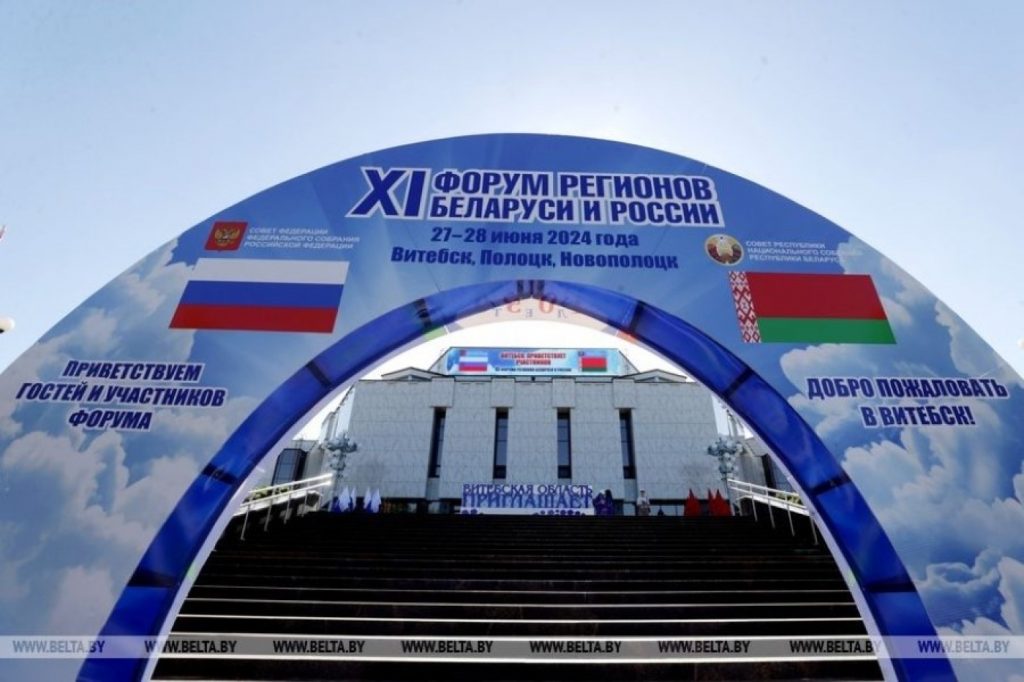
On Friday, June 28, Vladimir Putin made a video address to the participants of the Eleventh Forum of Regions of Russia and Belarus, which is taking place in Vitebsk region of the Republic of Belarus. The theme of the Forum in 2024 was “The role of interregional cooperation in building an innovative economy of the Union State”. In his address, the Russian President noted the current trends in strengthening Russian-Belarusian relations, and also made a number of statements in this context.
Key Abstracts:
- “It is important that this forum is dedicated to the role of interregional cooperation in building an innovative economy of the Union State. The topic is one of the most topical, because both Russia and Belarus are now actively engaged in solving the problem of introducing new technologies in all spheres of economic life, developing knowledge-intensive industries and agriculture”.
- “The package of agreements reached during the forum includes about 250 agreements and commercial contracts totaling 24 billion rubles. Their implementation will undoubtedly contribute to the expansion of regional cooperation and Russian-Belarusian trade and investment cooperation in general”.
- “I would like to emphasize that Belarus is one of Russia’s key economic partners. In turn, our country accounts for about 60 percent of Belarusian foreign trade transactions. Last year, trade turnover increased by more than five percent to a record $46.5 billion, and it is the regions that are the ‘engine’ of counter trade: enterprises, wholesale suppliers, and logistics centers located in the most diverse corners of both our countries.”
- “Enterprises from Moscow and St. Petersburg, Moscow and Leningrad regions, as well as Minsk and Minsk region have established cooperation in the production of optical devices and photonics devices for communication, data transmission and informatics systems.”
- “And of course, I cannot but talk about the largest, strategic and innovative Russian-Belarusian project – the construction of a nuclear power plant in the Grodno region. Contractor organizations from many Russian and Belarusian regions were involved in its construction. As of today, BelNPP has already generated more than 30 billion kilowatt-hours of inexpensive and clean electricity for the needs of the Belarusian economy”.
Totals/Predictions:
The theme of the development of horizontal relations between the Republic of Belarus and the constituent entities of the Russian Federation has been actively exploited over the past few years. The heads of the subjects of the Federation have visited Minsk, Lukashenka – some administrative centers in Russia, a huge number of agreements on cooperation in the economic sphere have been signed. Putin and Lukashenko constantly appeal to this practice, covering up Belarus’ unwillingness to go for a full merger and unification with Russia. In this situation, there was no super important event – the same imitative actions that cover up deeper and more serious processes among the Belarusian and Russian elites.
- Meeting with the permanent members of the Security Council
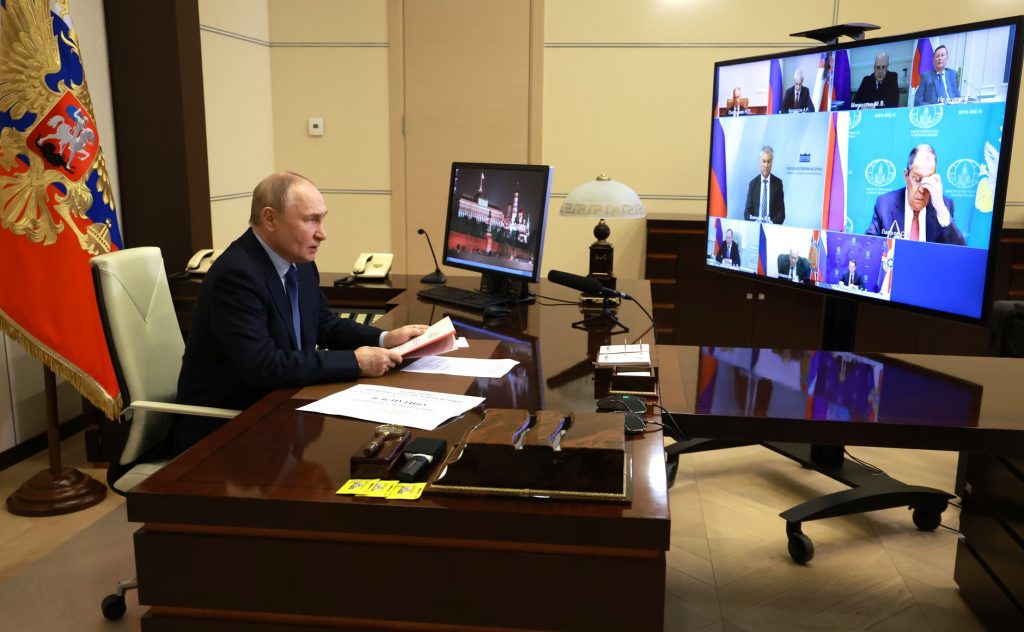
On Friday, June 28, Vladimir Putin held an online meeting with permanent members of the Security Council. The main topic of the meeting was the issue of Russia’s further steps regarding the unilateral moratorium on the deployment of land-based intermediate-range and shorter-range missiles.
The meeting was attended by Prime Minister Mikhail Mishustin, State Duma Chairman Vyacheslav Volodin, Head of the Presidential Administration Anton Vaino, Presidential Aide Nikolai Patrushev, Defense Minister Andrei Belousov, Foreign Minister Sergei Lavrov, Director of the Federal Security Service Alexander Bortnikov, Director of the Foreign Intelligence Service Sergei Naryshkin, Special Presidential Representative for Environmental Protection, Ecology and Transport Sergei Ivanov.
Key Abstracts:
- Putin: “As you know, a few years ago the United States, under a far-fetched pretext, withdrew from this treaty and announced that it would produce such missile systems.”
- Putin: “We announced in 2019 that we will not produce them, these missiles, and we will not deploy them until the United States deploys these systems in some region of the world.”
- Putin: “Today it is known that the United States not only produces these missile systems, but has already brought them to Europe for exercises, to Denmark. More recently, it was announced that they are in the Philippines. It is not known whether they have taken these missiles out of there or not.
- Putin: “In any case, we need to react to this and make decisions about what we should do in this area next. To all appearances, we need to begin production of these strike systems and then, based on the actual situation, make decisions on where – if necessary to ensure our security – to deploy them.
Totals/Predictions:
The topic of the deployment of land-based intermediate-range and short-range missiles is quite sensitive in terms of relations between Russia and NATO. Until recently, there was a moratorium on the deployment of these weapons. However, both sides have decided to abandon the moratorium. In this situation, Putin poses another threat to the United States’ European partners, while at the same time making it clear that such actions are an additional incentive for negotiations (the renewal of the moratorium could become one of the points of the negotiation process between Russia and NATO).
- Visit of Russian Interior Minister Vladimir Kolokoltsev to New York
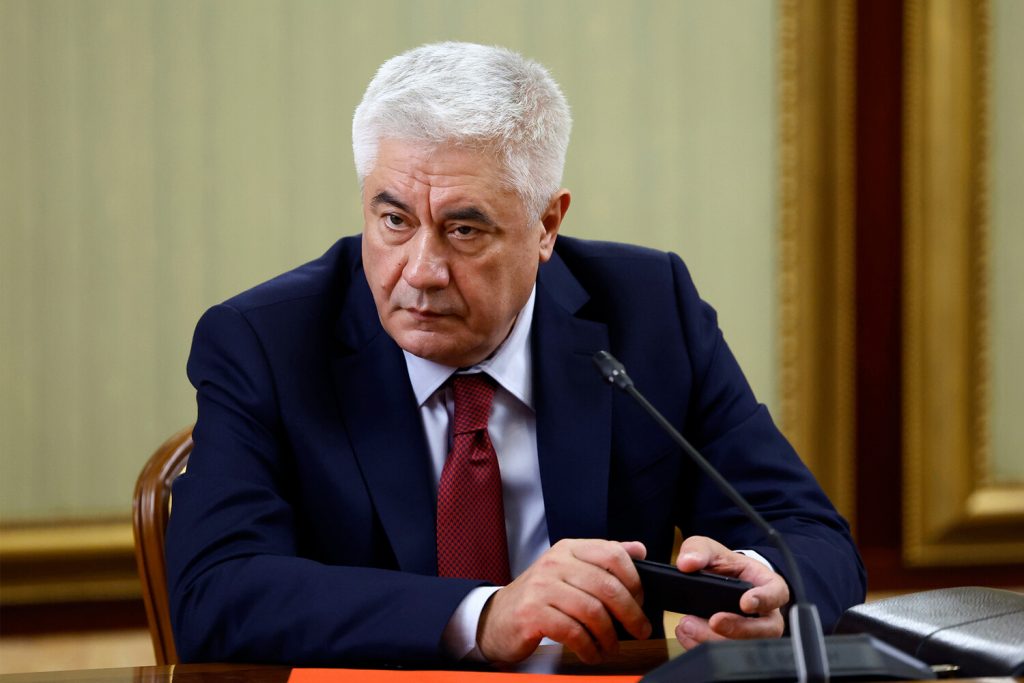
On Wednesday, June 26, Russian Interior Minister Vladimir Kolokoltsev arrived on a two-day visit to New York to attend a summit of police chiefs of UN member states. The Russian Interior Ministry said that Kolokoltsev plans to meet with UN Under-Secretary-General for Peacekeeping Operations Jean-Pierre Lacroix as well as hold bilateral meetings with some heads of delegations of law enforcement agencies of foreign states within the framework of the summit.
It is important to note that Kolokoltsev himself has been under U.S. sanctions since 2018, and after the start of Russian full-scale aggression, he was added to another sanctions list of the U.S. Department of the Treasury. According to the American legislation, persons who have fallen under the restrictions are prohibited from entering the territory of the United States.
At the same time, under the rules spelled out in the 1947 UN headquarters agreement, the United States is generally obligated to grant foreign diplomats access to UN events. In 2022, though, the United States did not grant Kolokoltsev a visa to attend a summit of UN police chiefs in New York.
Totals/Predictions:
Vladimir Kolokoltsev’s visit is of a technical nature and is unlikely to pursue any political goals. Some experts have already managed to present this visit as evidence of political contacts between Russia and the United States. Most likely, we should not exaggerate the importance of this visit (as well as the figure of Kolokoltsev in general). During his visit, the Russian Interior Minister discussed a number of accumulated issues in the field of law and order and the functioning of police structures.

